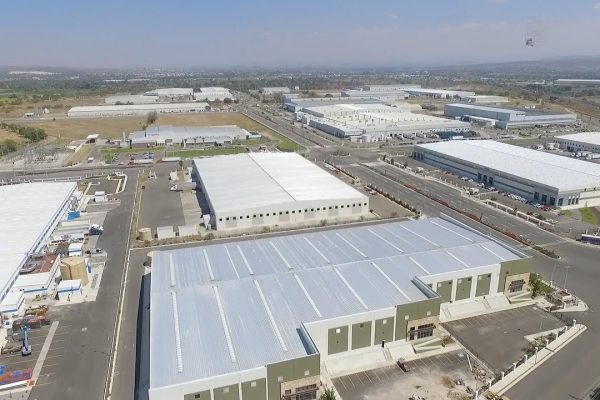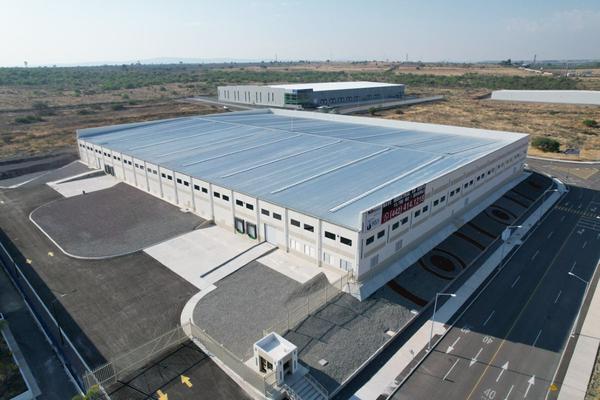During the last few years, investment from Chinese companies in Mexico has increased significantly. This trend is clearly reflected in the numbers, $386 million in 2021 and $282 million in 2022. Chinese companies have now become the fastest-growing source of foreign investment in Mexico, with a particular focus on the manufacturing sector. Their investments span across various projects, including computer equipment, construction machinery, electric vehicles, and furniture.
In 2021 and 2022, a large portion of this investment was directed to the northern state of Chihuahua, followed by $216 million in Mexico City and $78 million in Nuevo León. From January to September 2023, the states that received the highest amount of Chinese foreign direct investment were Nuevo León ($36 million), Jalisco ($11.7 million), and Sonora.
Why Chinese Companies Are Interested in Mexico
Chinese companies are increasingly drawn to Mexico for several key reasons:
Proximity to the U.S. Market: Chinese investment primarily targets industries and regions in Mexico that export to the United States, one of the largest consumer markets in the world. This has become even more relevant due to rising tariffs on Chinese goods entering the U.S. As part of the United States-Mexico-Canada Agreement (USMCA), Mexico offers companies tariff-free access to U.S. and Canadian markets. Additionally, Mexico has more trade agreements than any other country, offering significant advantages for businesses operating within its borders.
Established Industrial Base: Mexico’s strongest industries include automotive, electronics, and oil. With the rise of nearshoring by U.S. companies, Mexico has further developed capabilities in aerospace, new materials, and medical devices. Mexico is the leading exporter of medical equipment to the U.S. and ranks as the 8th largest global manufacturer of medical devices, with over 2,500 medical device companies based in the country. It also boasts a highly educated workforce and has seen rapid growth in information technology and business process outsourcing (BPO) industries.
Skilled and Cost-Effective Labor: Mexico’s large, skilled workforce has a strong technical background suited for high-value manufacturing in industries like automotive, aerospace, electronics, and medical devices. In terms of labor costs, wages in Mexico are significantly lower than in the U.S., and though they may be higher than in some Asian countries, reduced transportation costs and favorable tax incentives make it a cost-effective alternative. For example, Bloomberg Law reports that factory wages in Mexico range between $2.75 and $4.82 per hour, while in China, factory wages average $6.50 per hour.
Supply Chain Strength: Major Chinese companies are investing heavily in Mexico, not only to take advantage of the benefits under the USMCA, but also to position production closer to customers and reduce risks linked to geopolitical tensions. For Chinese firms with significant markets in North America, relocating operations to Mexico offers a practical alternative to manufacturing in China or other Asian countries, mitigating risks associated with pandemics, trade barriers, and political instability. Additionally, reduced transportation distances and costs further boost the competitiveness of goods made in Mexico and exported to the U.S. and Canada.
Important Considerations
Chinese companies looking to expand their manufacturing operations in Mexico need to conduct thorough due diligence. This involves understanding the local legal and regulatory environment, assessing workforce availability and quality, analyzing cost factors, evaluating the manufacturing base and supply chain, as well as reviewing logistics, customs procedures, dispute resolution mechanisms, and intellectual property protection.
From a legal perspective, the following are critical:
Company and Operational Structures: Many Chinese companies prefer to set up their Mexican operations using an offshore structure to distance the subsidiary from the parent company in China. This approach helps reduce exposure to geopolitical risks and takes advantage of the tax incentives offered by the Mexican government, such as those under the IMMEX Program. It’s common for companies to establish multiple entities to achieve their commercial and strategic goals.
International Tax Planning: Nearshoring to Mexico involves tax implications in China, the U.S., and Mexico. Depending on the business strategy, there may also be tax considerations in other jurisdictions. Establishing an efficient cross-border tax structure is crucial and may include setting up offshore holding companies, trade companies tailored to specific regions, and structuring investment vehicles accordingly.
Regulatory Compliance: A detailed regulatory review is essential for Chinese companies entering Mexico, helping them avoid unexpected risks. For example, labor laws in Mexico can lead to hidden costs, such as social security contributions, profit-sharing obligations, and year-end bonuses (aguinaldo), which can increase labor costs. Additionally, Mexico imposes strict regulatory requirements under its various duty minimization regimes, including certifications, permits, inventory controls, and recordkeeping. Compliance with these regulations is critical.
Local Incentives: The Mexican federal government offers various incentive programs nationwide, and state governments sometimes offer additional local incentives, such as temporary exemptions from payroll and property taxes, as well as funding for job training programs.
Recent Developments
On October 11, 2023, a decree was published in Mexico’s Official Gazette of the Federation, introducing tax incentives for key export industries. These include immediate deductions for new fixed asset investments and additional deductions for employee training expenses.
In conclusion, Mexico’s evolving legal and regulatory landscape continues to encourage foreign investment, presenting significant opportunities for Chinese companies seeking to optimize their operations through nearshoring.








